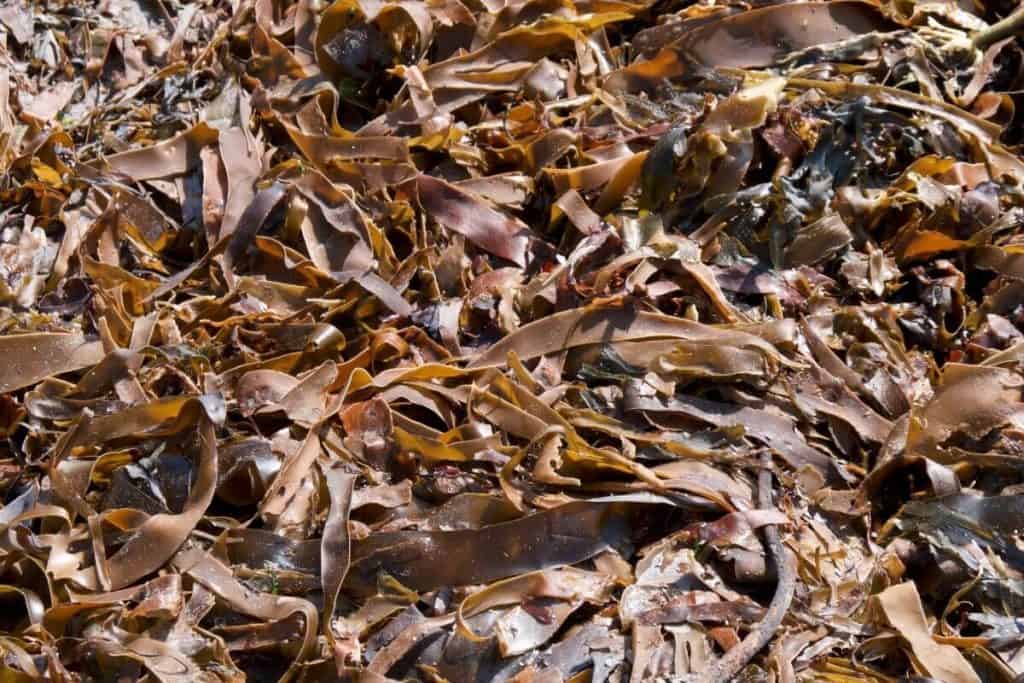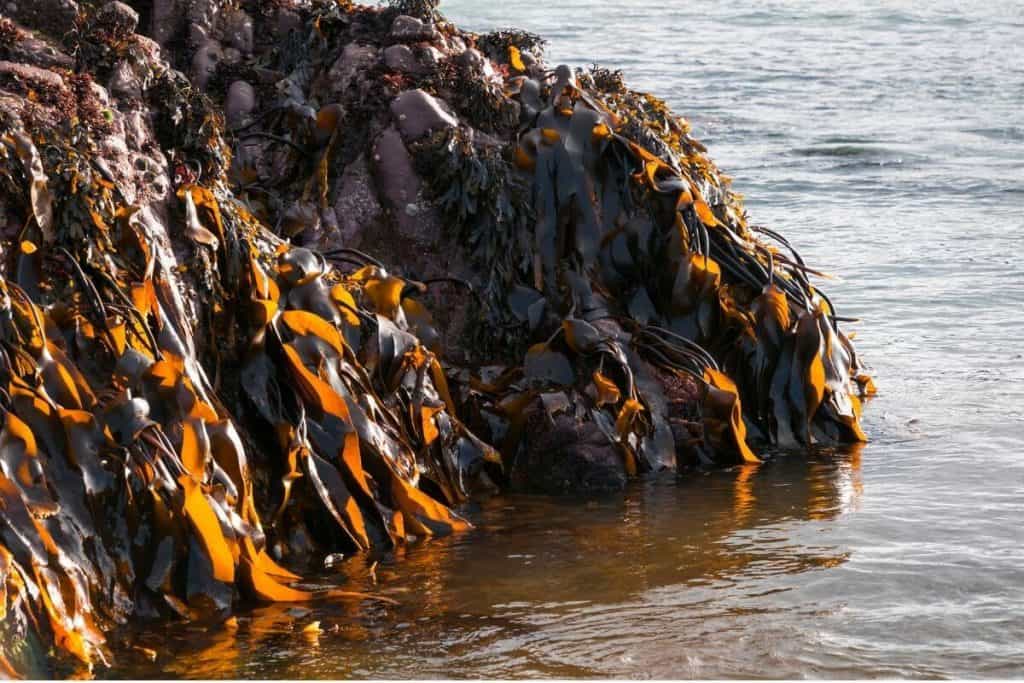We independently research and recommend the best products here. This article contains affiliate links. If you make a purchase after clicking on a link, we may earn a little commission at no extra cost to you.
Seaweed fertilizers are organic plant feeds comprising of extracts of Seaweed resourcefully obtained from the ocean.
It contains beneficial nutrients such as Magnesium, Potassium, Nitrogen, etc. Ascophyllum nodosum is a type of Seaweed trendy for its boosting ability to overall plant health. Seaweed, no doubt, is very beneficial to plants.a
But which plants like Seaweed Fertilizer? In other words, can you comfortably use this fertilizer on all plants without any hazardous effects?
Basically, plants like gardenias, camellias, azaleas, rhododendrons and native plants like Seaweed Fertilizer as they benefit a lot from it.
Let’s quickly look at how seaweed fertilizer is beneficial to plants!
Table of Contents
Are Seaweed Fertilizers Beneficial for All Plants?
A fantastic organic plant food, Seaweed fertilizers can genuinely improve the quality of your plants' harvest. But can all plants benefit from Seaweed?
Quite simply, YES, all plant varieties can benefit from Seaweed. It can be advantageous to different kinds of plants in diverse ways because it contains complex carbs and vital minerals.
In other words, Seaweed fertilizer contains valuable nutrients that can make every plant grow or thrive.
Apart from serving as an excellent nutrient to plants, it also includes the broadest range of advantages, such as promoting bacterial activity in soil mediums, which helps to improve root nutrient intake and is also a disease and pest resistant chemical.
Related Post: Best Fertilizer for Geraniums
Other Benefits of Using Seaweed Fertilizer

There are several benefits that your plants can derive when you apply Seaweed Fertilizers to them.
We have already mentioned that Seaweed fertilizer contains valuable nutrients that can make every plant grow or thrive. It also promotes bacterial activity in soil mediums, which helps to improve root nutrient intake.
Another benefit of this fertilizer is that it also serves as a disease and pest resistant material. Since it contains toxic chemicals poisonous to pests and animals, it will help scare them away, thus preventing the damaging effects of invading plants.
Also, these chemicals have a powerful and choking smell that help to scare these pests.
Seaweed is made up of natural plant hormones; therefore, it is advantageous in avoiding transplant shock whenever you move a plant around the garden.
It also helps to improve seed germination. For instance, peanuts with giant seeds ought to be soaked in Seaweed Fertilizers for precisely one day for the best germination possible.
A Very easy to use fertilizer, the Seaweed is beneficial in helping to improve the thickness of plant cell walls because it causes them to be a lot more resistant to pest and disease's disastrous effects while also enhancing its frost resistance.
Generally, the most notable benefits of using Seaweed Fertilizer is as follows;
- It promotes new budding
- It helps root plants
- It reduces fruit and vegetable softening
- It improves the overall quality and quantity of pasture crops
- It enhances resistance to frost, disease, and stress
- It prevents pests and conditions soil
Which Plants like Seaweed Fertilizer?
Like we earlier discussed, Seaweed is a wide range of nutrient fertilizer that contains rich beneficial minerals and hormones that encourages plant growth.
It has a massive amount of carbohydrates, vital in producing blocks in growing plants, and low cellulose, breaking down quickly.
However, there are certain plants that Seaweed fertilizer is most beneficial. Plants like Geraniums grow more flowers per plant, and Seaweed fertilizer contributed to that.
With Seaweed nutrients, Grapes become sweeter, Gladiolus corms become larger, Cucumber produce increases by 40%, and its fruits suffer less often from softening and rot.
Apart from the fruits mentioned above, there are other plants like Seaweed Fertilizer. Planters of acid and iron plants such as gardenias, camellias, azaleas and rhododendrons will see their plants benefit from Seaweed, as it acidifies and adds iron to the soil, which helps the plants thrive.
Native plants also benefit significantly from Seaweed Fertilizers.
Related Post: How Do You Bring Dead Soil Back To Life?
Which of the Varieties of Seaweed Fertilizer is Best for Your Plants?

Seaweed Fertilizer is an organic plant nutrient that comes from a sustainable source and boosts overall plant health. There are notably two kinds of Seaweed Fertilizer; Liquid Seaweed and Solid Seaweed Fertilizers.
Both are effective and advantageous to your plants but demands different conditions of applications.
However, typically, the best and most effective Seaweed fertilizer for your plants is the Liquid Seaweed, as it works perfectly well with foliage feeding and works faster and is most popular than the solid type, generally.
How Do You Apply Seaweed Fertilizer to Your Plants?
This crucial question bothers on Seaweed Fertilizer, most notably since both types of Seaweed Fertilizers have different application methods. Also, one thing is to have a Seaweed Fertilizer, and another thing is to know the best ways of applying it.
Rather than applying it the wrong way, you shouldn't make use of a Seaweed Fertilizer at all, as it can have disastrous effects on your plants. However, it is not as difficult as you may think it is. The following are the best method to apply a Liquid Seaweed Fertilizer to your plants;
- Spray it on the plant's leaves. It is more effective than mixing it in the soil
- Mist their leaves so that the plants will absorb the fertilizer better. Avoid dousing your plants with it.
- You can only use this fertilizer on already growing plants, not new plants with fewer than three leaves.
The following are the best method to apply a powdered or granular seaweed fertilizer to your plants:
Note: since they are solid, it will take a longer time for the plant to break them down, hence, taking them long to take effect on the plant.
- Endeavour to adjust the concentration of the fertilizer depending on what plants you are fertilizing.
- If you're spraying your lawn with this fertilizer, always endeavor to dilute it so that it will cover the whole yard.
- For indoor plants that require lots of help, an increase in concentration is recommended.
Related Post: Can I Use BBQ Charcoal For Terrarium?




